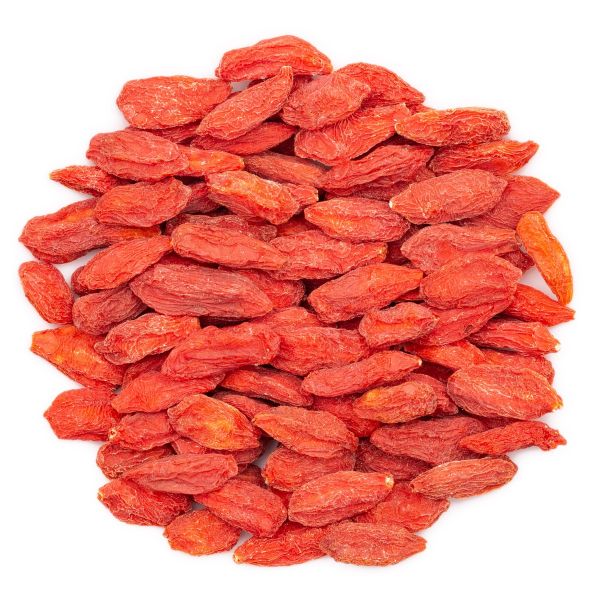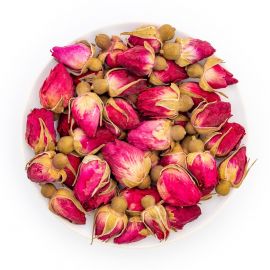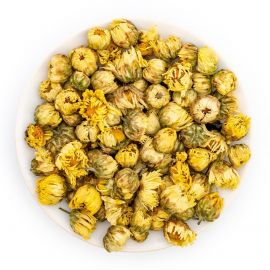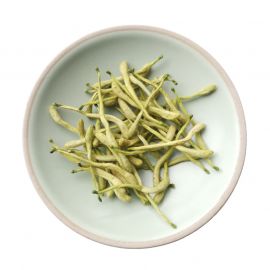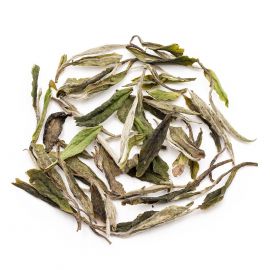- Another name: Wolfberry,Gou Qi
- Ingredients: Goji Berries
- Origin: Ning Xia, China
- Harvest time: In June,2023
- Taste: Mildly sweet
What is Goji Berries?
The goji berry also called the wolfberry or Gou Qi is a bright orange-red berry that comes from a shrub that's native to China. In Asia, goji berries have been eaten for generations in the hope of living longer.
Over time, people have used goji berries to try to treat many common health problems like diabetes, high blood pressure, fever, and age-related eye problems. Goji berries are eaten raw, cooked, or dried (like raisins) and are used in herbal teas, juices, wines, and medicines.
What does Goji Berries taste like?
Dried goji berries have a mild sweetness and are slightly chewy, which makes them perfect for snacking or using in beverages and recipes.
What can Goji Berries be used for?
In China, Goji Berries is mostly used to make tea, soup, and porridge. You can incorporate them into trail mixes, smoothies, or baked goods. Sprinkle them as a healthy and delicious topping to your oatmeal, yogurt, and salads, or just eat them right out of the bag for a fruity snack.
You can also cook goji berries with lean pork or turkey to add a savory sweetness to hearty dishes. Plus, their vitamin C content will help your body absorb the meat’s iron.
What is Goji Berries good for?
For thousands of years, the mildly sweet Goji Berry has been used in ancient Chinese medicine to support longevity!
Richly nutrient, Goji berries contain many valuable macronutrients including carbohydrates, protein, healthy fats, and soluble fiber. 18 amino acids, carotenoids, vitamin C, carotenoids and beta-carotene, vitamins A and E, more iron than soybeans and spinach, and more than 20 trace minerals and vitamins.
These rich nutrients make goji berries helpful in boosting immunity, beautify the skin, anti-aging, nourish the liver and kidney, and reduce blood sugar and blood lipids.
| Weight | 0.100000 |
|---|---|
| Tea Type | Herbal tea |
| Form | Loose |

